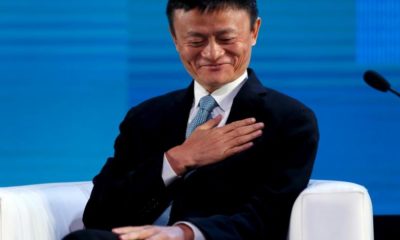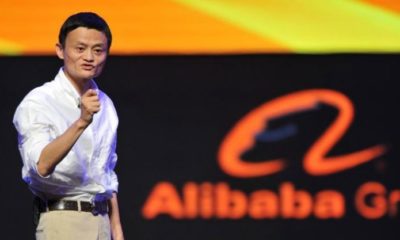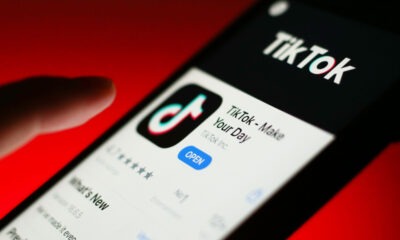Alibaba Group Holding Ltd., the Chinese e-commerce giant, witnessed a significant surge in its shares following reports that China is preparing to impose a fine of over $1.1 billion on its fintech affiliate, Ant Group Co.
This development indicates that the extensive probe that has been weighing on Jack Ma’s empire for years may finally be coming to a close.
According to insiders cited by Reuters, China’s central bank is expected to announce the fine against Ant Group as early as Friday. This move would enable Ant to pursue a financial holding company license, reignite its growth trajectory, and eventually revive plans for an initial public offering (IPO).
Alibaba’s shares surged by 3.4% in Hong Kong on Friday, while its American Depositary Receipts rose by approximately 2.6% in premarket trading before the New York exchanges opened.
Investors responded positively to the news as it suggests that the era of intense scrutiny is drawing to an end for Alibaba.
“The market likes it because scrutiny looks likely to be over and the fine, though big in absolute terms, is very manageable for such a big company,” stated Vey-Sern Ling, the managing director at Union Bancaire Privee.
The anticipated 8 billion yuan fine is expected to be lower than Ant’s estimated profit of 9.6 billion yuan in the December quarter.
The investigation into Ant Group marked the beginning of a sweeping crackdown on the wider Chinese internet industry, causing significant financial losses for major players such as Alibaba and Tencent Holdings Ltd.
The potential revival of Ant’s business growth raises hopes that Beijing may ease restrictions on the private sector, as part of a nationwide effort to stimulate the sluggish economy.
Ant Group has yet to respond to a request for comment regarding the impending fine.
The IPO of Ant Group was halted by regulators in 2020 after Jack Ma publicly criticized financial regulators, provoking the ire of Beijing. Shortly afterward, the Chinese government initiated a clampdown on the private tech sector, accusing Alibaba of monopolistic behavior and imposing a record fine for these alleged violations.
The relentless scrutiny over the years has significantly weakened Ma’s empire. Ant’s profitability has declined since its ambitious plans for the world’s largest IPO in 2020, while Alibaba is currently undergoing a major restructuring that will separate it into six main businesses, spanning from cloud services to meal delivery and logistics.
Initially, investors welcomed the potential for increased value creation, but Alibaba’s shares have since retreated from their 2023 highs, shedding over $600 billion in value since the Ant episode began.
The central bank’s directive in 2021 required Ant Group to consolidate all its financial units into a holding company. Also, the company was instructed to open its payments app to competitors and sever any improper links between payments and other products, including lending services.
Market observers have been eagerly awaiting the conclusion of this probe to gauge Beijing’s stance on China’s vast internet sector. Authorities had pledged to unwind the crackdowns that had ensnared various private sectors, including technology and online education, as the country aims to revive its economy, which is the second-largest globally.
Although this recent development signals Beijing’s intention to fulfill its commitments to support the sector, concrete actions will be necessary to stabilize investor confidence. Ant Group is still awaiting regulatory approval to commence the review process for establishing the financial holding company and to eventually resume its IPO.
Vey-Sern Ling noted that Ant is now a significantly different company than it was before, primarily due to the imposed restrictions, resulting in a diminished valuation. While Ant fetched a pre-IPO valuation of $280 billion, the multitude of regulations implemented over the past couple of years has reduced its value substantially, leading it to be perceived as more of a financial rather than a technology company.
Earlier this year, Jack Ma relinquished his controlling rights over Ant Group, further complicating its prospects for an imminent IPO. According to Chinese regulations, companies cannot list domestically on the A-share market if there has been a change in control within the past three years.
The waiting period is reduced to two years for listing on Shanghai’s STAR market, which caters to new technology companies. As for Hong Kong’s stock exchange, the waiting period is one year.


 Forex3 weeks ago
Forex3 weeks ago
 Naira3 weeks ago
Naira3 weeks ago
 Billionaire Watch3 weeks ago
Billionaire Watch3 weeks ago



 Naira3 weeks ago
Naira3 weeks ago






 Naira2 weeks ago
Naira2 weeks ago




 Naira2 weeks ago
Naira2 weeks ago




 Naira4 weeks ago
Naira4 weeks ago






 Naira1 week ago
Naira1 week ago



















